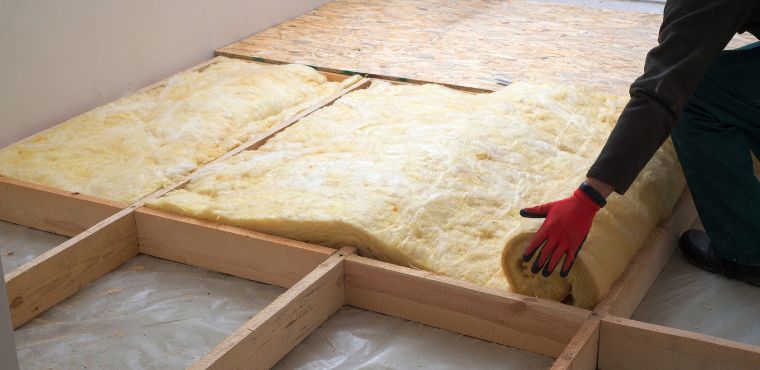Insulating your home is essential, as it maintains comfortable temperatures indoors, reduces energy bills, and promotes eco-friendliness. However, you need to consider certain factors before installing insulation in your home. We’ll discuss the key aspects to think about before your insulation project.
Choosing the Right Type of Insulation Material
The different insulation materials have pros and cons. The most common materials include fiberglass, cellulose, mineral wool, spray foam, and rigid foam boards. Consider price, thermal performance, ease of installation, and your home’s needs to make the best choice. Talk to an insulation expert or do some research to understand which material would best suit your home’s requirements.
Assessing the R-Value and Thickness Requirement
The R-value measures an insulation material’s heat resistance. A high R-value means better insulating capabilities. You can determine the appropriate R-value for your home based on the climate, building design, and energy-efficiency goals. Additionally, consider the depth of the wall frame or attic space where you will install the insulation. The material’s thickness and its R-value contribute to its effectiveness. Fortunately, the US Department of Energy provides a recommended R-value chart based on geographical regions to help homeowners make informed decisions for insulation.
Importance of Proper Ventilation and Moisture Control
You should consider ventilation before installing home insulation. Good ventilation prevents moisture buildup and keeps indoor air fresh. Moisture can cause dampness, mold growth, and even structural damage, undermining the benefits of insulation. Ensure your home’s ventilation system provides adequate airflow through exhaust fans, vents, or windows. If necessary, consider installing new ventilation points or upgrading your existing system during your insulation project.
Professional Installation vs. the DIY Approach
Decide between hiring a professional insulation contractor or attempting a DIY installation. While DIYing might save money, you could encounter challenges, such as inaccurate measurements, poor handling of materials, and incorrect installation techniques.
Unless you have experience in insulation projects, you should hire a professional insulation contractor. Professionals have the skills and experience to install insulation well. They can ensure the materials are in the right position and provide maximum thermal performance.
Insulation is excellent for energy efficiency, comfort, and environmental protection. By considering these factors before installing home insulation, you can make informed choices and get the most out of your insulation upgrade.








